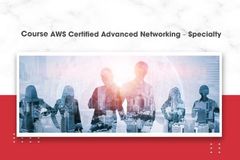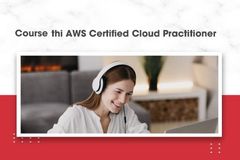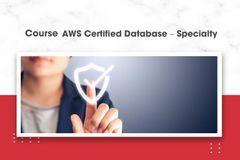"Yes. Atoha will issue a certificate of 35 contact hours at the end of the course (1 of 3 requirements for the international PMP certification exam). Atoha's contact hours are pre-approved because we are PMI ATP Premier."
AWS CERTIFIED DEVOPS ENIGNEER – PROFESSIONAL
AWS Certified DevOps Engineer – Professional is for individuals with more than two years of experience performing as a automation engineer (DevOps) for applications on the AWS platform; responsible for provisioning, operating, and managing the AWS environment. To obtain this certification, you need to take and pass the AWS Certified Developer – Associate or AWS Certified SysOps Administrator – Associate exam.
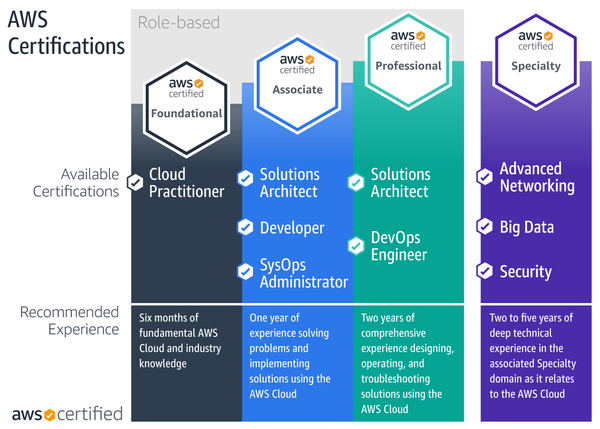
AWS certification overview
Terminology explanation:
- AWS (Amazon Web Services): A cloud computing platform from Amazon, currently widely used, providing more than 175 services with full features such as compute, database, kernel intelligence. create, machine learning ...
- AWS Certification: is a certification system that assesses expertise and practical skills on Amazon cloud computing systems.
The Value of Owning an AWS Credential
AWS Certification assesses understanding of the cloud (cloud computing), specifically Amazon Web Services (AWS) services, as well as the effective application of those services in practice; and provide the foundation needed to work with AWS services and solutions.
It can be said that owning an AWS certificate is a strong proof that you have been endorsed by one of the most prestigious organizations in the field of cloud computing. With your AWS certification in hand, you'll advance, demonstrate your skills and open up a wide range of career opportunities in the increasingly competitive Cloud market.
Statistics show that 52% of IT professionals (Information Technology) after gaining AWS professional certifications, their reports are immediately widely searched for in the organization. Furthermore, 45% of professionals effectively performed their roles and 43% improved their job performance significantly (Global Knowledge IT Skills and Salary Report 2019)
AWS Certification System
The AWS certification suite is divided into Cloud Practitioner, Architect, Developer, Operations and Specialty roles; with 3 levels of Foundational (Basic), Asociate (Members) and Professional (Professional).
Foundational: Needs at least 6 months of any position experience with basic knowledge of AWS Cloud.
Associate (Associate): Approximately 1 year of experience in problem solving and solution deployment using AWS Cloud is required.
Professional: At least 2 years of comprehensive experience required in the design, operation, and troubleshooting solutions using AWS Cloud.
Specialty: Has technical experience working with AWS Cloud in a specific area of expertise.
More Details:
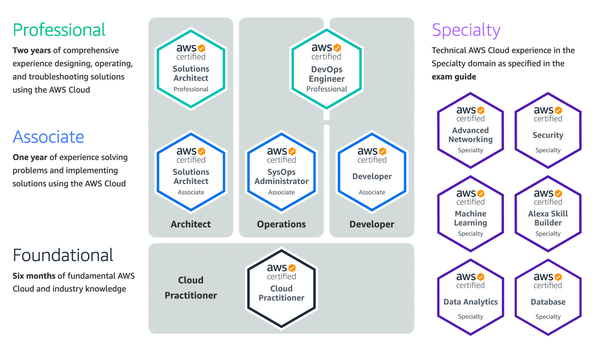
AWS Certified DevOps Enigneer – Professional

AWS Certified DevOps Engineer – Professional is for individuals with more than two years of experience performing as a automation engineer (DevOps) for applications on the AWS platform; responsible for provisioning, operating, and managing the AWS environment. To obtain this certification, you need to take and pass the AWS Certified Developer – Associate or AWS Certified SysOps Administrator – Associate exam.
The exam also validates a candidate’s ability to complete the following tasks:
- Implement and manage continuous delivery systems and methodologies on AWS
- Implement and automate security controls, governance processes, and compliance validation
- Define and deploy monitoring, metrics, and logging systems on AWS
- Implement systems that are highly available, scalable, and self-healing on the AWS platform
- Design, manage, and maintain tools to automate operational processes
See more on AWS website
Exam Outline
- Domain 1: SDLC Automation 22%
- Domain 2: Configuration Management and Infrastructure as Code 19%
- Domain 3: Monitoring and Logging 15%
- Domain 4: Policies and Standards Automation 10%
- Domain 5: Incident and Event Response 18%
- Domain 6: High Availability, Fault Tolerance, and Disaster Recover 16%
TOTAL 100%
See more here.
| Domain 1: SDLC Automation | 22% |
| Domain 2: Configuration Management and Infrastructure as Code | 19% |
| Domain 3: Monitoring and Logging | 15% |
| Domain 4: Policies and Standards Automation | 10% |
| Domain 5: Incident and Event Response | 18% |
| Domain 6: High Availability, Fault Tolerance, and Disaster Recovery | 16% |
| TOTAL | 100% |
Domain 1: SDLC Automation
1.1 Apply concepts required to automate a CI/CD pipeline
1.2 Determine source control strategies and how to implement them
1.3 Apply concepts required to automate and integrate testing
1.4 Apply concepts required to build and manage artifacts securely
1.5 Determine deployment/delivery strategies (e.g., A/B, Blue/green, Canary, Red/black) and how to
implement them using AWS Services
Domain 2: Configuration Management and Infrastructure as Code
2.1 Determine deployment services based on deployment needs
2.2 Determine application and infrastructure deployment models based on business needs
2.3 Apply security concepts in the automation of resource provisioning
2.4 Determine how to implement lifecycle hooks on a deployment
2.5 Apply concepts required to manage systems using AWS configuration management tools and services
Domain 3: Monitoring and Logging
3.1 Determine how to set up the aggregation, storage, and analysis of logs and metrics
3.2 Apply concepts required to automate monitoring and event management of an environment
3.3 Apply concepts required to audit, log, and monitor operating systems, infrastructures, and applications
3.4 Determine how to implement tagging and other metadata strategies
Domain 4: Policies and Standards Automation
4.1 Apply concepts required to enforce standards for logging, metrics, monitoring, testing, and security
4.2 Determine how to optimize cost through automation
4.3 Apply concepts required to implement governance strategies
Domain 5: Incident and Event Response
5.1 Troubleshoot issues and determine how to restore operations
5.2 Determine how to automate event management and alerting
5.3 Apply concepts required to implement automated healing
5.4 Apply concepts required to set up event-driven automated actions
Domain 6: High Availability, Fault Tolerance, and Disaster Recovery
6.1 Determine appropriate use of multi-AZ versus multi-region architectures
6.2 Determine how to implement high availability, scalability, and fault tolerance
6.3 Determine the right services based on business needs (e.g., RTO/RPO, cost)
6.4 Determine how to design and automate disaster recovery strategies
6.5 Evaluate a deployment for points of failure
Tuition fees: Contact Atoha for a specific consultation.
Atoha bank account information:
| Beneficiary's name | Cong ty co phan Atoha | Nguyen Si Trieu Chau |
| Bank Account | 6868 2468 | 7777 2468 |
| Bank name | Asia Commercial Joint Stock Bank (ACB) | Asia Commercial Joint Stock Bank (ACB) |
| Bank address | ACB, Tan Son Nhi, HCMC | ACB, Tan Son Nhi, HCMC |
Contact information:
Atoha Institute of Project Management – The key to professional project management
HCM: 69-71 Thach Thi Thanh, Tan Dinh Ward, District 1
Hanoi: 299 Cau Giay, Dich Vong Ward, Cau Giay District
Toronto: 10 Oakfield Dr, Toronto, ON, M8Y 1N7, Canada
Hotline: 0707 666 866 | HCM: (028) 6684 6687 | Hanoi: (024) 6686 1248
Contact Info
"Learning materials can be in English or Vietnamese depending on the class. Atoha can train in both English or Vietnamese."
"Not included. You need to pay the exam fee directly to PMI in order to register for the exam, the reference exam fee is 555usd/non-member and 405usd/member. For more information, visit: www.pmi.org"
"Some typical corporate customers are Nestle, Colgate-Palmolive, Castrol, Coca-Cola, Suntory Pepsico, Carlsberg, Schneider Electric, GEA, Sonion, Terumo BCT, Lazada, NEC, Apave, Vinamilk, VNG, MB Bank, FE Credit, PTI, Mobifone, VNPT, PV Gas, CJS, MB Ageas Life, Deha Software, PNJ, Square Group, Delta, Gamma, DSquare, Vascara, FECON, VNT19, Vingroup (HMS),.."





